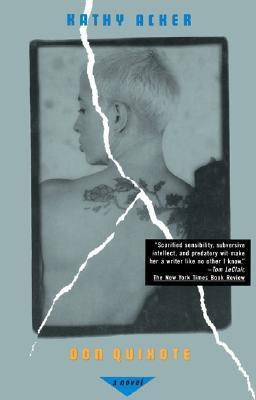
Kathy Acker's Don Quixote is an indomitable woman on a formidable quest: to become a knight and defeat the evil enchanters of modern America by pursuing "the most insane idea that any woman can think of. Which is to love.'" In this visionary world, Don Quixote journeys through American history to the final dys of the Nixon administration, passing on the way through a New York reminiscent of prerevolutionary St. Petersburg and a brutally defamiliarized contemporary London. Here transvestites who might play at being Nazis and beautiful she-males enact the rituals of courtly love. Presiding overt this late-twentieth-century Levithian is Thomas Hobbes—the Angel of Death.
Author

Born of German-Jewish stock, Kathy Acker was brought up by her mother and stepfather (her natural father left her mother before Kathy was born) in a prosperous district of NY. At 18, she left home and worked as a stripper. Her involvement in the sex industry helped to make her a hit on the NY art scene, and she was photographed by the newly fashionable Robert Mapplethorpe. Preferring to be known simply as 'Acker' (the name she took from her first husband Robert, and which she continued to use even after a short-lived second marriage to composer Peter Gordon), she moved to London in the mid-eighties and stayed in Britain for five years. Acker's writing is as difficult to classify into any particular genre as she herself was. She writes fluidly, operating in the borderlands and junkyards of human experience. Her work is experimental, playful, and provocative, engagingly alienating, narratively non sequitur.